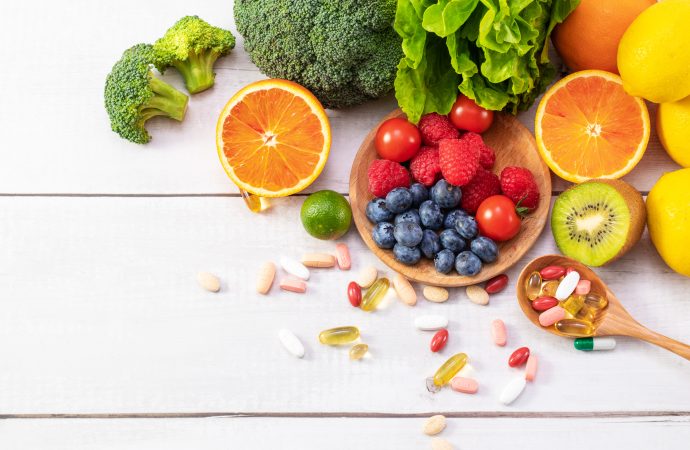Are you getting enough Vitamin K in your diet? This essential nutrient may not be as well-known as Vitamin C or D, but it plays a vital role in keeping our bodies healthy. From promoting bone health to aiding in blood clotting and reducing inflammation, there are many reasons why we should pay attention to
Are you getting enough Vitamin K in your diet? This essential nutrient may not be as well-known as Vitamin C or D, but it plays a vital role in keeping our bodies healthy. From promoting bone health to aiding in blood clotting and reducing inflammation, there are many reasons why we should pay attention to our intake of this important vitamin. In this blog post, we’ll dive deeper into the importance of Vitamin K and explore how you can make sure you’re getting enough of it in your daily diet. So grab a cup of tea and let’s get started!
What is Vitamin K?
Vitamin K is an essential nutrient that helps promote blood coagulation. It is found in leafy green vegetables, legumes, and other plant-based foods. In addition to promoting blood coagulation, vitamin K can help to prevent heart disease and stroke.
What are the Benefits of Vitamin K?
Vitamin K is an essential nutrient for human health. It helps to form blood clots, supports nerve growth and function, and aids in the absorption of other nutrients. It is also important for the health of your bones.
The benefits of including vitamin K in your diet depend on how much you consume. The recommended dietary allowance (RDA) for adults is 90 micrograms per day. You can get enough vitamin K from a variety of foods, but fortified foods are a good way to supplement your intake.
How Much Vitamin K Do You Need?
Vitamin K is an essential nutrient for humans that helps to maintain strong bones and teeth. It is also important for blood clotting and helping to regulate the immune system. Most of the vitamin K you need comes from foods, but you can also get it from supplements.
The recommended daily amount of vitamin K for adults is 75 micrograms. A microgram is one millionth of a gram. The Daily Value (DV) for vitamin K is 120 micrograms.
Foods That Are Good Sources of Vitamin K
Foods that are good sources of vitamin K include leafy green vegetables, whole grains, nuts, and fortified foods. Vitamin K is important for the body because it helps form blood clots. It’s also needed for proper bone health and can help prevent heart disease and some kinds of cancer.
How to Get More Vitamin K in Your Diet
A lack of vitamin K can lead to problems with blood clotting and bone health. Vitamin K is found in leafy green vegetables, whole grains, nuts, and seafood. Getting enough vitamin K in your diet can help to keep your body healthy and functioning properly. Here are some ways to increase your intake of this essential nutrient:
Eat a variety of plant-based foods. These include leafy green vegetables, whole grains, nuts, and seafood.
Consume fortified foods and beverages. Fortified foods typically contain added vitamin K. Some examples include milk, yogurt, soy milk, cereal bars, rice drinks, orange juice, and many processed foods.
Take a multivitamin supplement that includes vitamin K.
Conclusion
Vitamin K is an essential nutrient that is critical for the health of your bones and joints. It helps to keep your blood clotting properly, which can prevent injuries and promote good health overall. Additionally, vitamin K can help to maintain a healthy immune system and support cognitive function. If you are deficient in this nutrient, it may lead to impaired bone growth and other health issues. Make sure to get enough vitamin K by eating foods that are high in this essential nutrient or taking supplements.

















Leave a Comment
Your email address will not be published. Required fields are marked with *